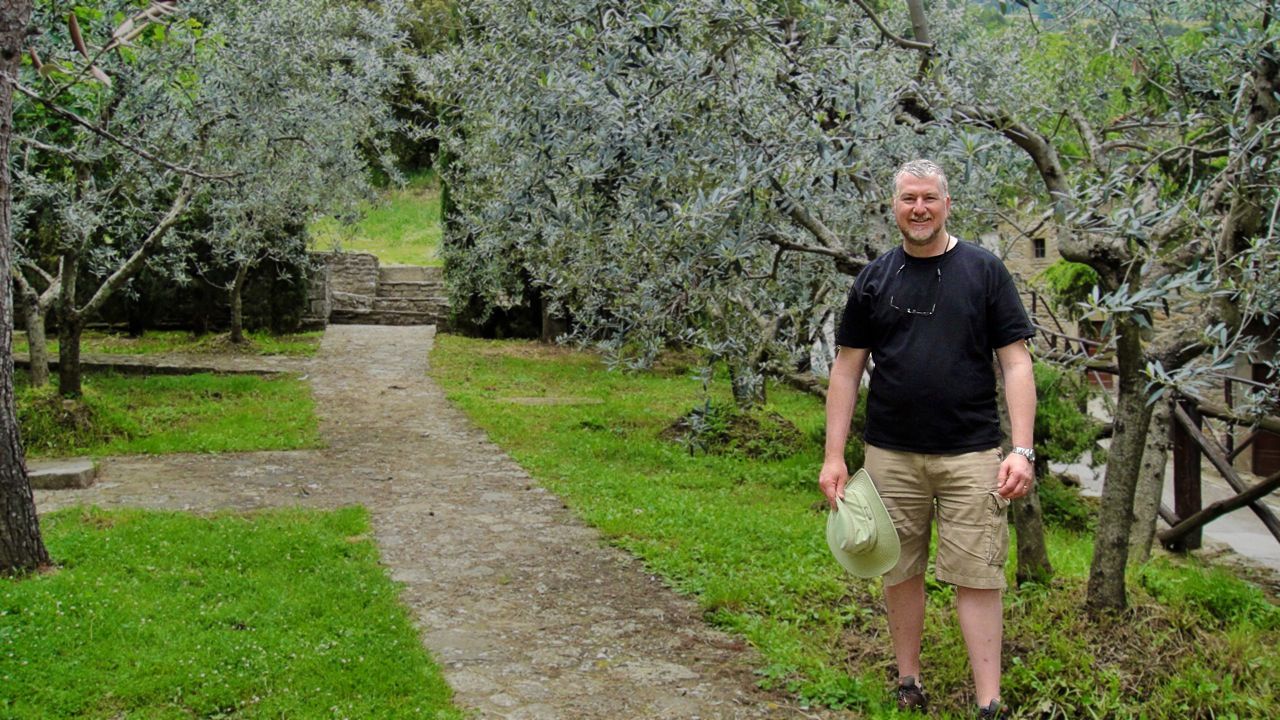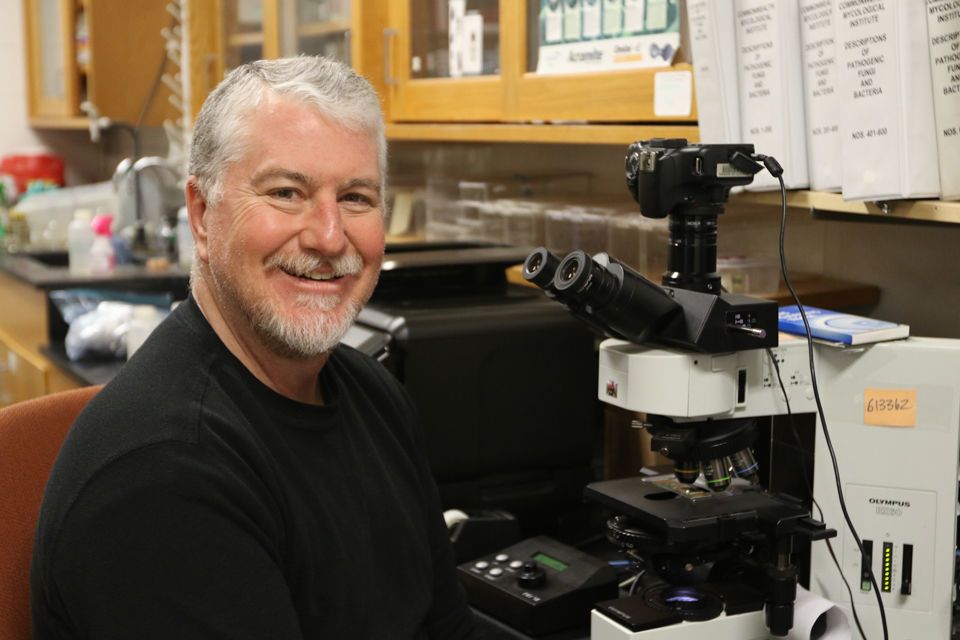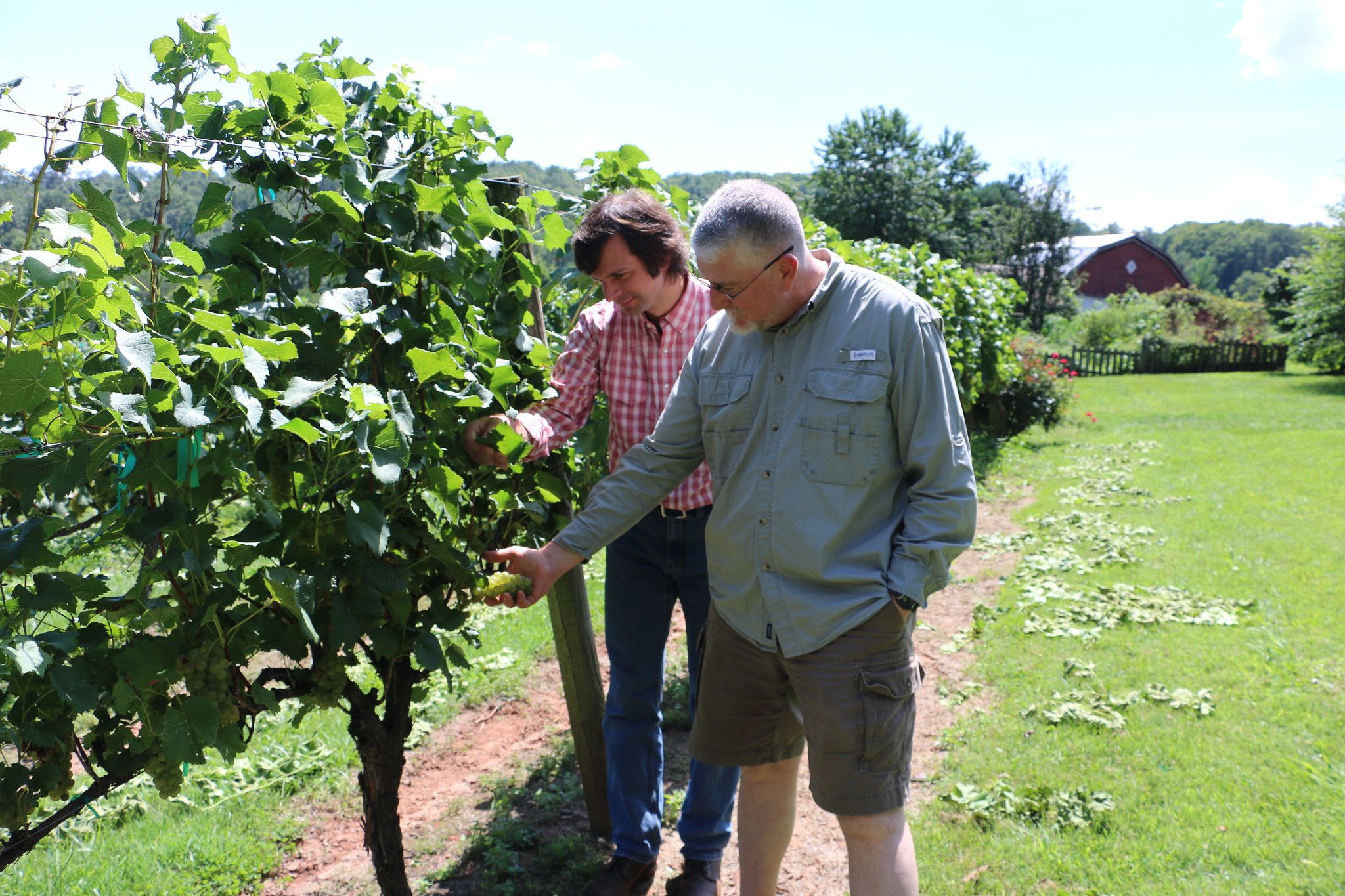
How did you get to your current position as an Extension specialist?
My career path was convoluted at best, but it always had a thread of the sciences and plant pathology at its core. I was raised on a small farm near Statesboro, Georgia, but my interest in plant pathology was more by chance than design. I took an introductory plant pathology course under Ron Roncodori in my senior year of college at UGA.
From there, I worked with some of the professors in the plant pathology department at that time — Ron Roncodori and States McCarter — and my interest was piqued.
But it was Ken Papa that set my trajectory; he was the graduate coordinator at the time and the man after whom one of our most prestigious graduate student awards is now named — the Papa Award.
He talked to me in a parking lot about the potential of graduate school, which was otherwise nowhere on my radar. He offered me an assistantship in his lab, and I got a master's degree because I really had nothing better to do, and someone offered to pay me to go to school.
I think I was halfway through the master's before I realized that it had any real value. I then worked as an Extension county agent in Alabama, and it was there that I saw the value of Extension specialists.
"I feel 'called' to this career. Not everyone can say that," explained Brannen. (Photo by Emily Haney, emilyhaney.com)
"I feel 'called' to this career. Not everyone can say that," explained Brannen. (Photo by Emily Haney, emilyhaney.com)
So I pursued a doctorate in plant pathology at Auburn University, detoured to work for a seed treatment company as a research plant pathologist for six years, and then decided to try my hand at an academic Extension job a little closer to home – the UGA Extension fruit pathologist position. The rest is history, as they say.
Why did you choose your field?
I enjoy plant pathology because it is an applied science. I always loved the sciences, but the combination of microbiology and agriculture was particularly appealing to me.
I have had the opportunity to apply my knowledge base to diseases on most of the commodities grown in the United States and quite a few that are grown throughout the world.
"The opportunity to evaluate new diseases has been particularly terrifying, challenging and rewarding at the same time," said Brannen.
"The opportunity to evaluate new diseases has been particularly terrifying, challenging and rewarding at the same time," said Brannen.
My emphasis on fruit pathogens has been particularly challenging in the wet, warm environment of the Southeast, where virtually every pathogen that can attack a fruit does, in fact, do so.
Though my job has been challenging, it has also been very rewarding. I really love farmers and helping them make a living for their families.
Pathogens are not forgiving, so if I have been able to help producers in their decisions so that they can survive, feed their families and feed the world with their produce, that is a worthwhile endeavor for me.
Farming is a tough career, and one or two mistakes can make the difference between making it or not.
What is your favorite part about what you do?
The opportunity to evaluate new diseases has been particularly terrifying, challenging and rewarding at the same time.
Over the last 22 years, I have been involved in identification and management of new bacterial, fungal, viral, nematode and even algal diseases. I have had the opportunity to work with some amazing research counterparts in order to do this. At their core, a good Extension specialist is a problem solver.
That means promoting and developing teams to solve problems, as you can’t do it alone. In addition, I have had the opportunity to work with some great graduate students, and their research projects have been instrumental in addressing many of these new pathogens.
Phil Brannen won the 2015 D.W. Brooks Award for Excellence in Extension to recognize his work to make popular fruits, like blueberries and grapes, viable crops in the sometimes soggy, sometimes sweltering, Georgia climate.

What is your proudest recent accomplishment?
Most recently, I am particularly proud of our efforts to study fungicide resistance development in fungal and oomycete pathogen populations impacting grape.
These research and extension efforts have been nationally and internationally recognized. The same can also be said of our efforts to revitalize research on phony peach disease caused by the bacterium Xylella fastidiosa, and Georgia is once again recognized as having the world experts on this disease.
If you could do anything else, what would it be?
I have been often asked, “What would you do if you were not doing this for a career?” That is a tough question, as I feel “called” to this career. Not everyone can say that.
I do enjoy history, but I have even been able to incorporate that into my work and publications. I know that lots of folks work out their lives in jobs that they truly hate. I am particularly thankful to have a job that has provided for me and one that I can enjoy doing at the same time.
However, I am convinced that almost any job can be fun if you do it with the right people. I am thankful to say that I have had great collaborators in the fruit pathology community, and any success I may have had has been as much a testimony to these enjoyable colleagues as anything else.





